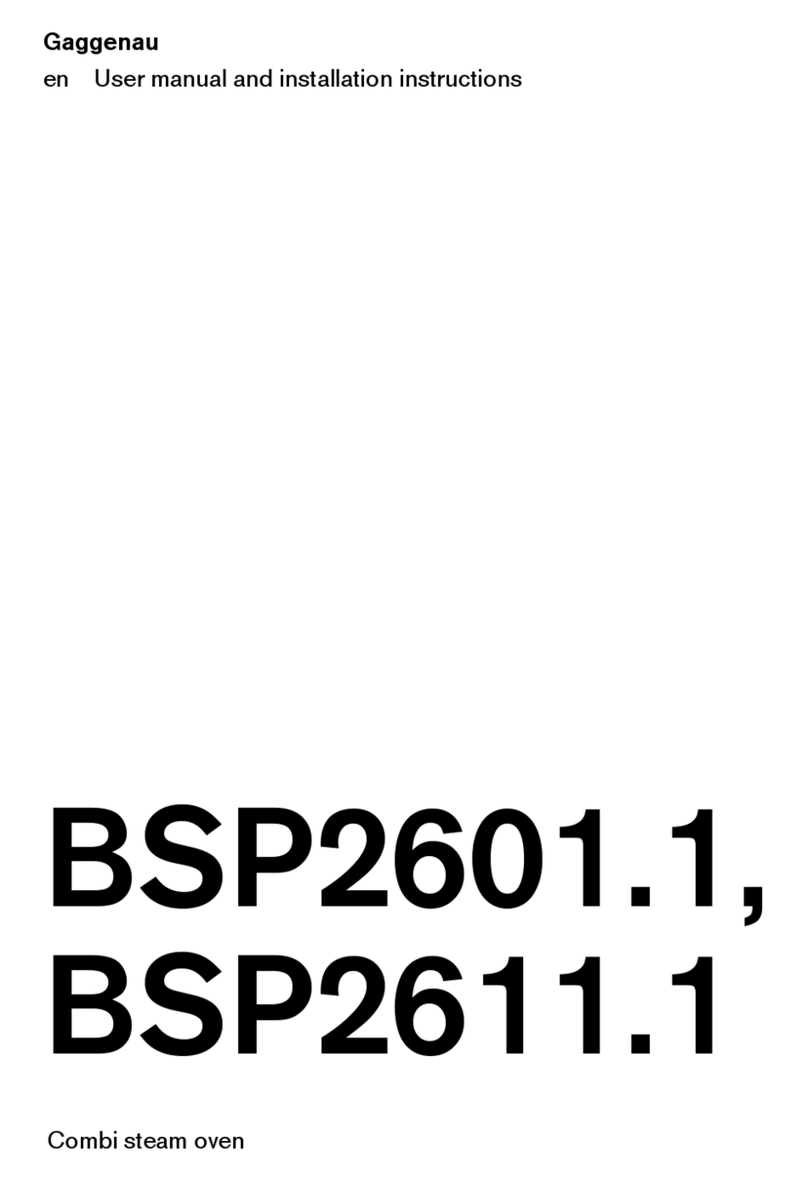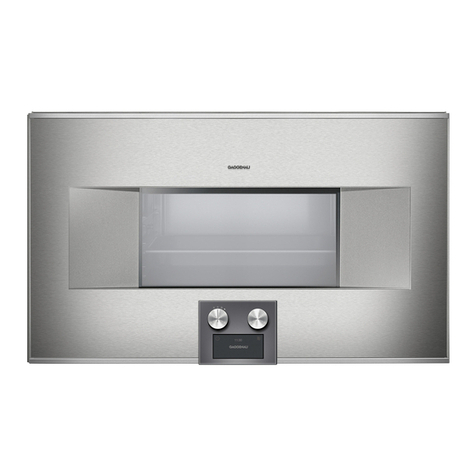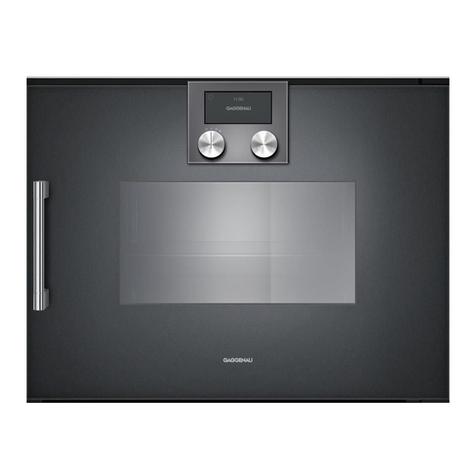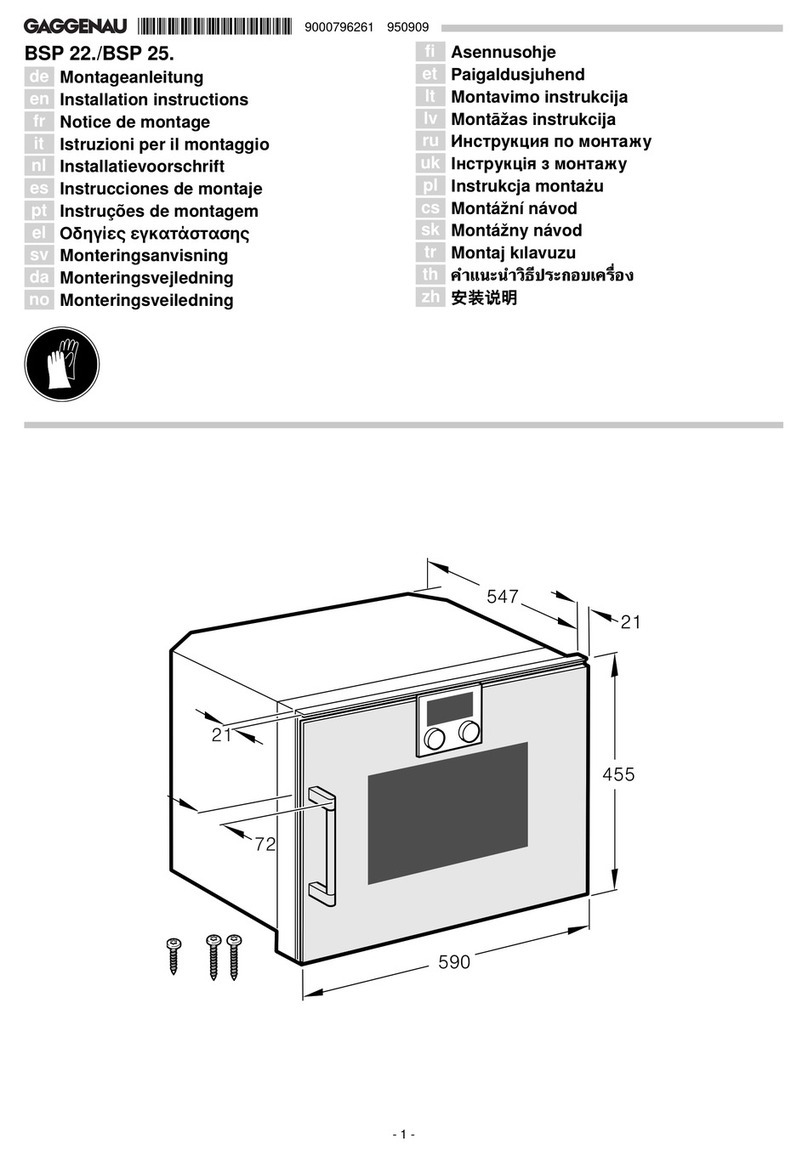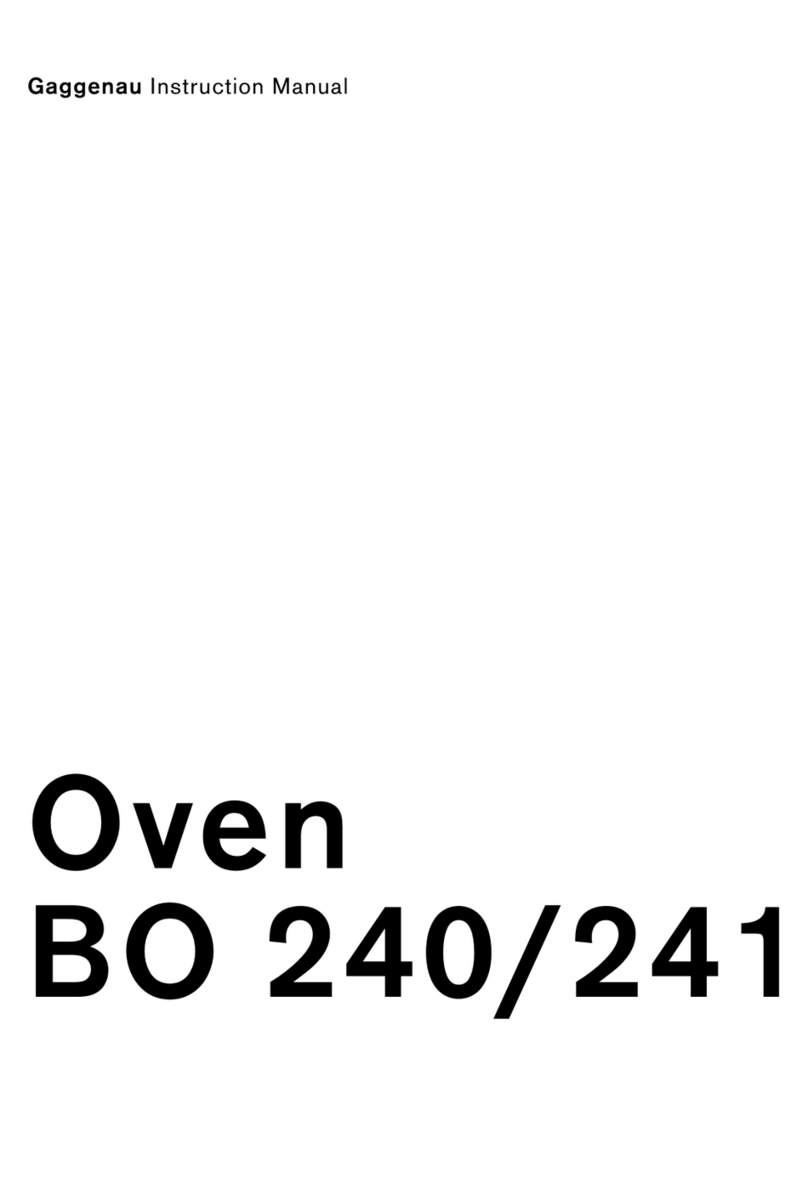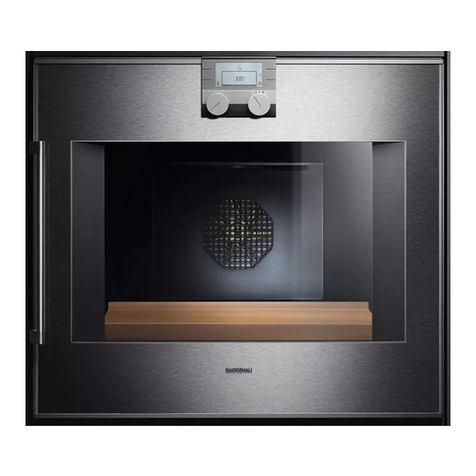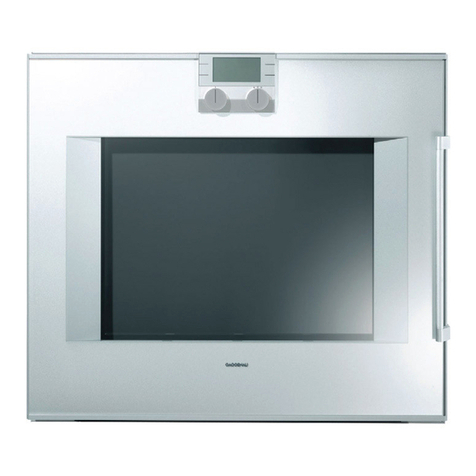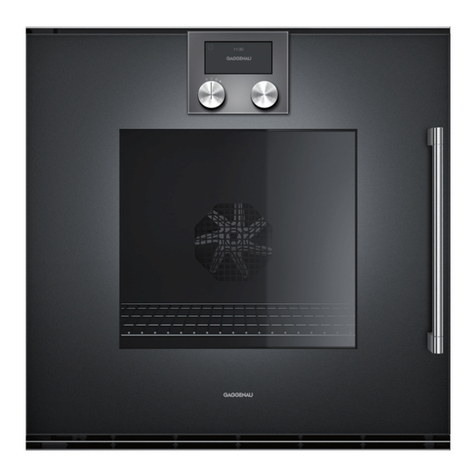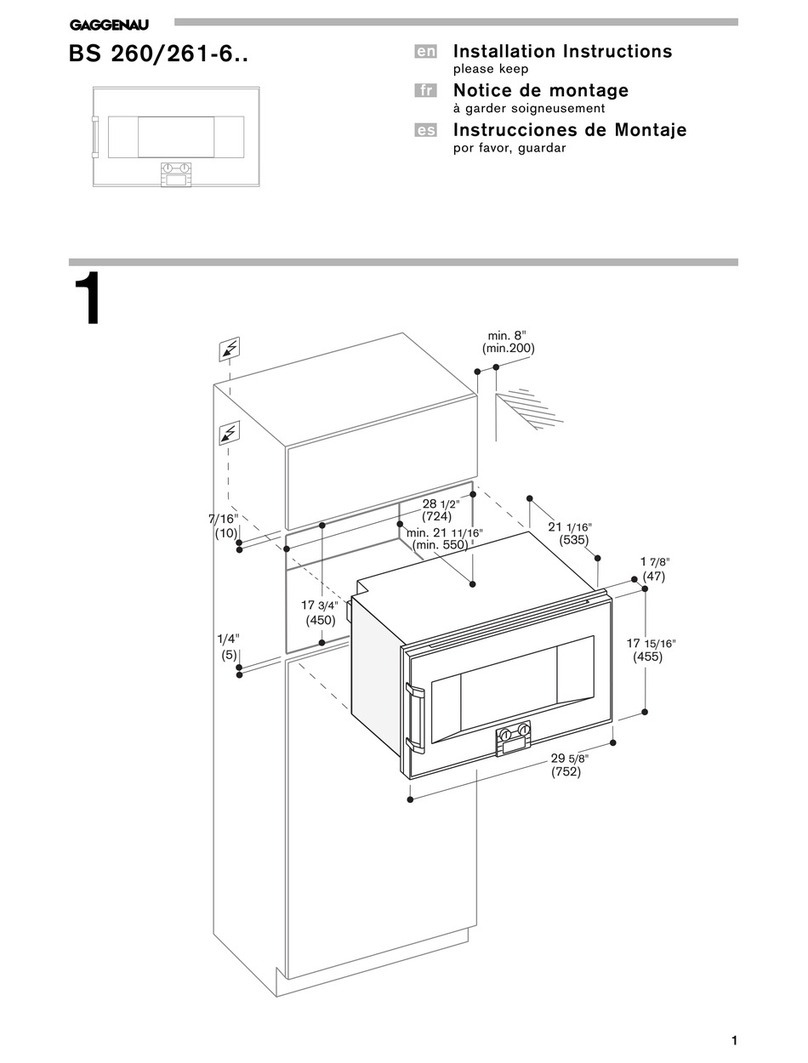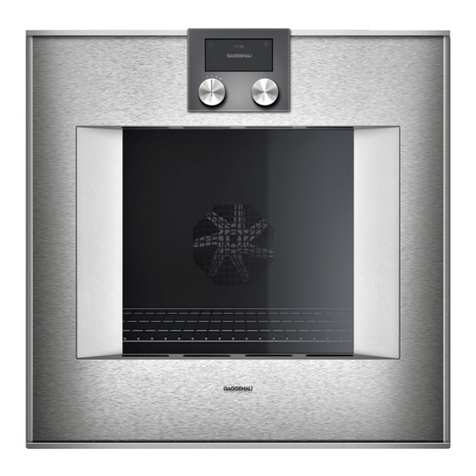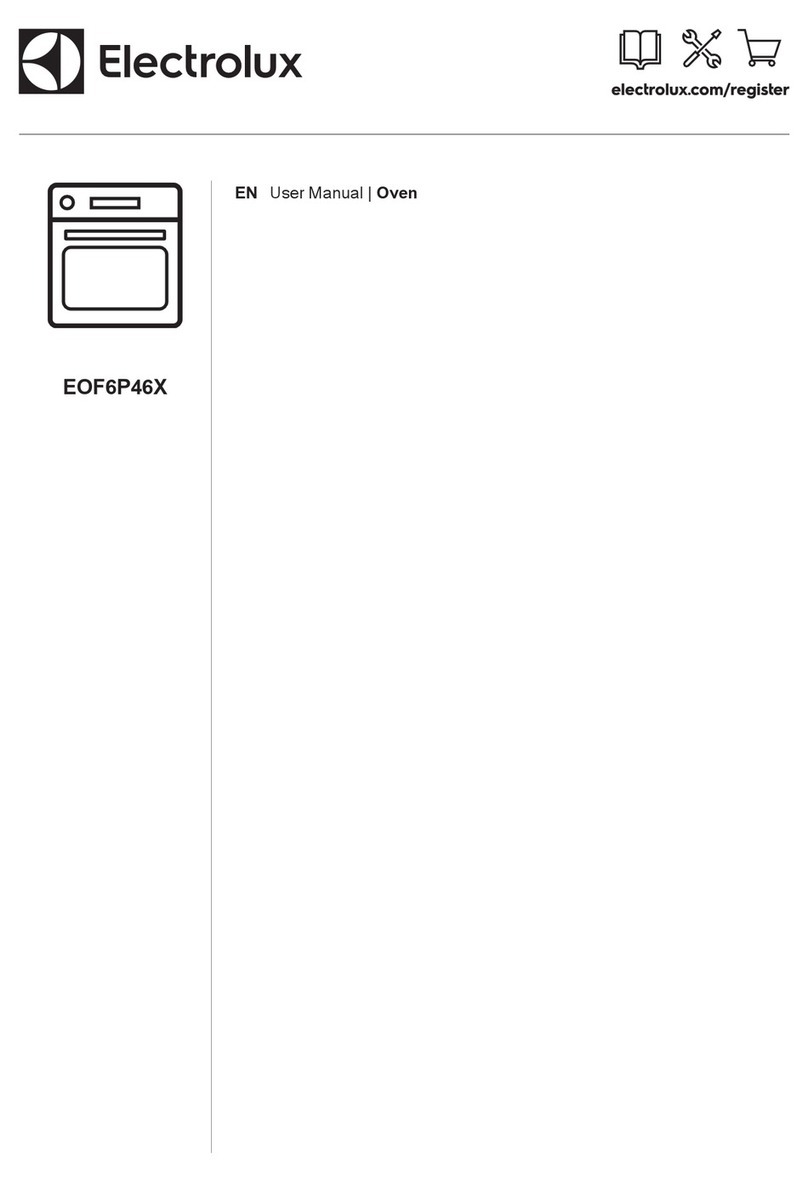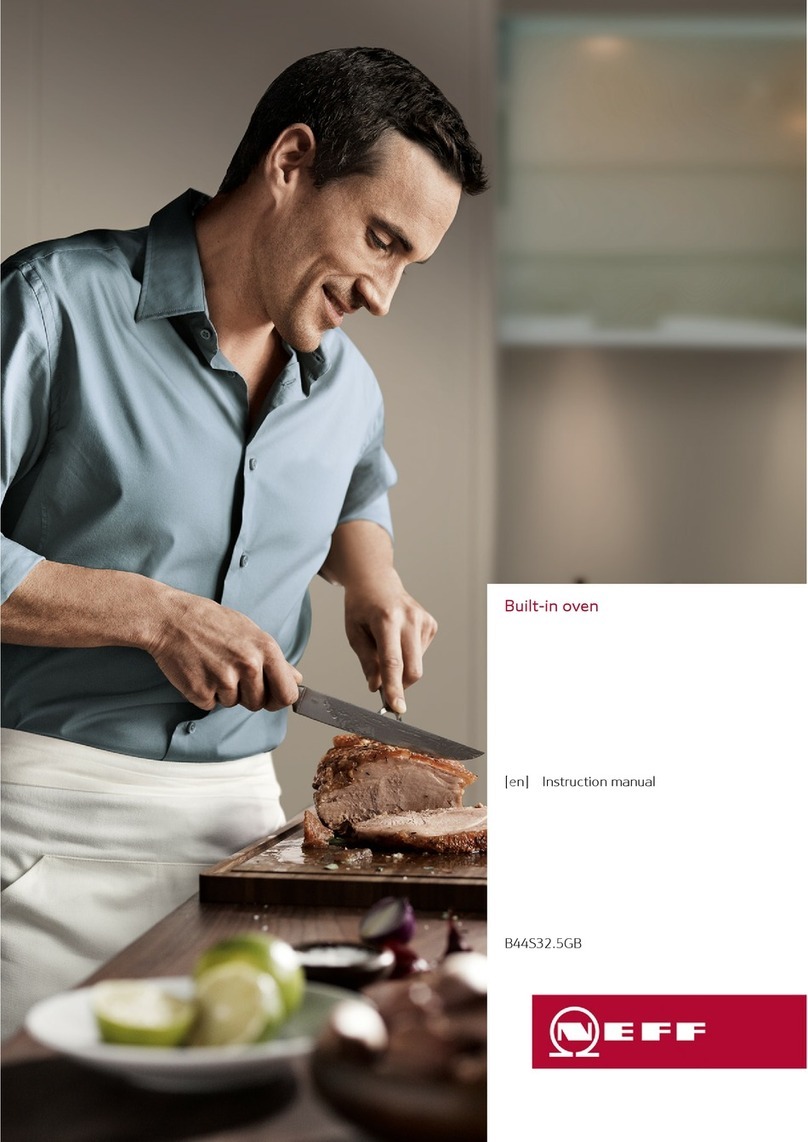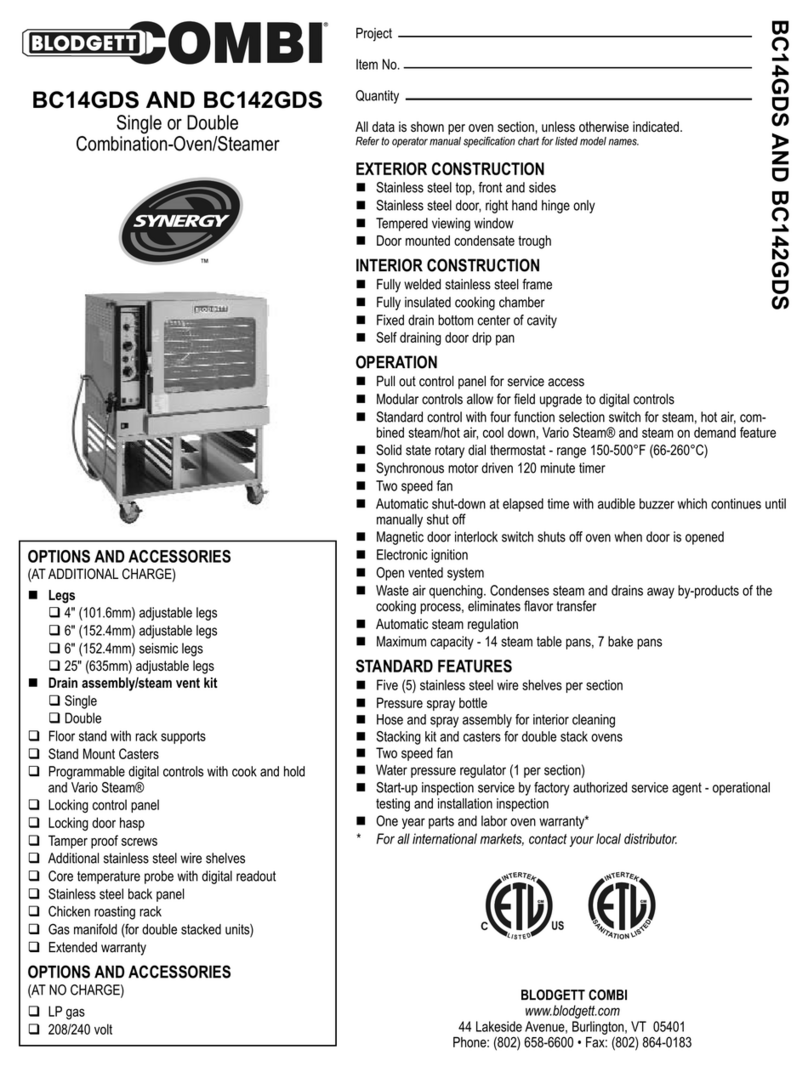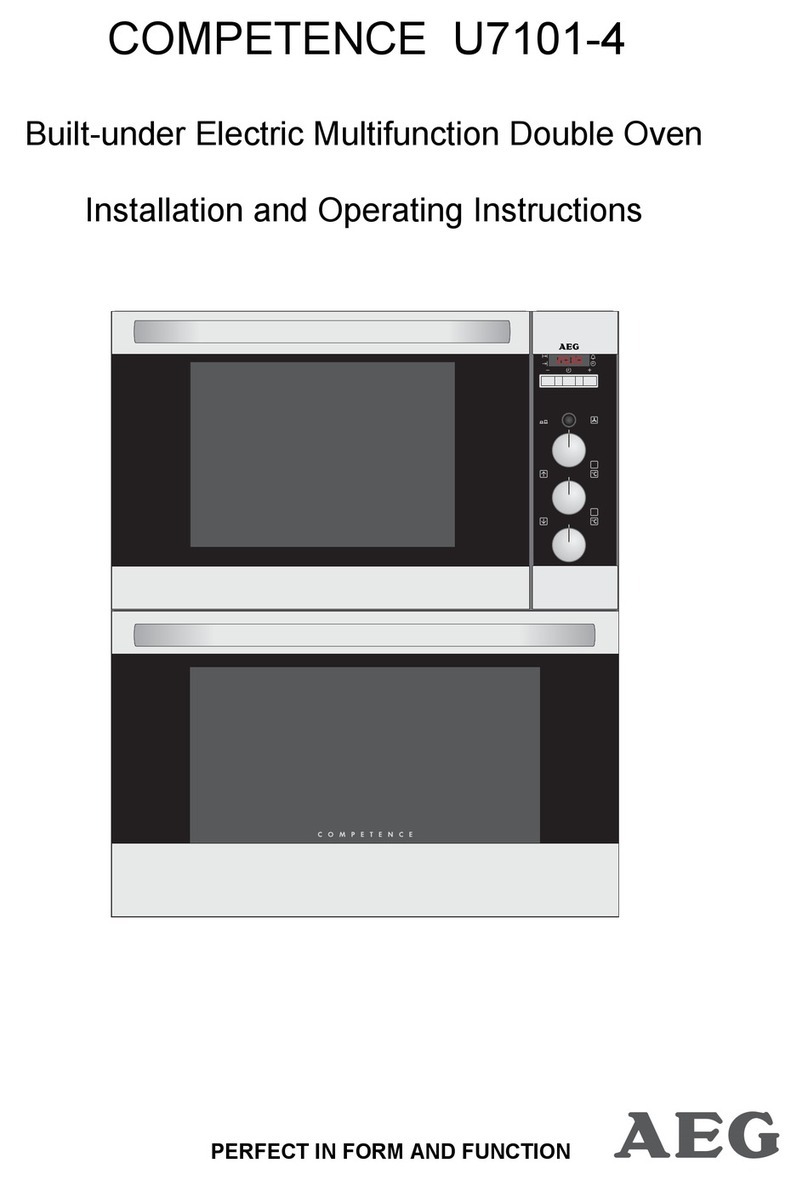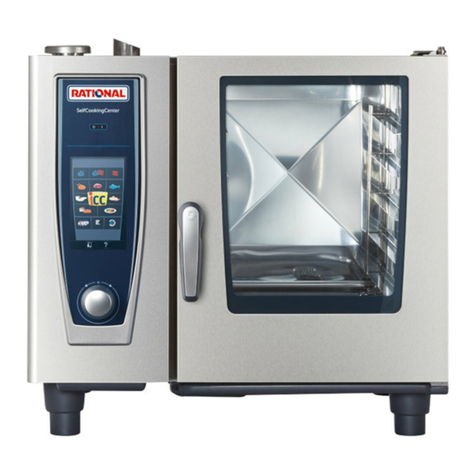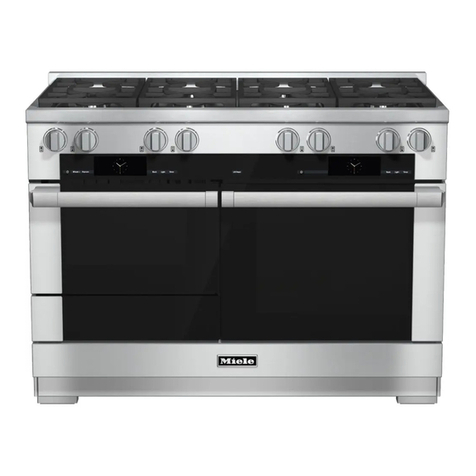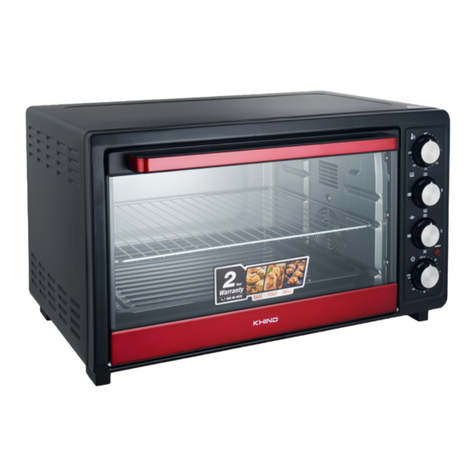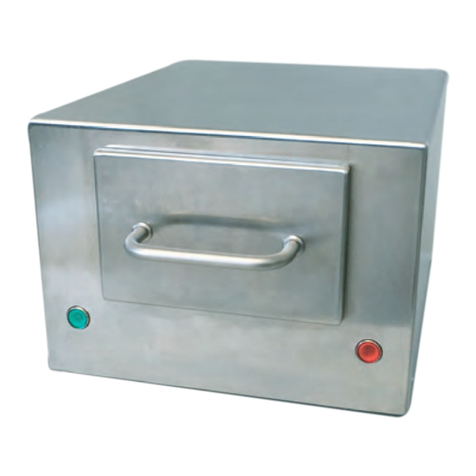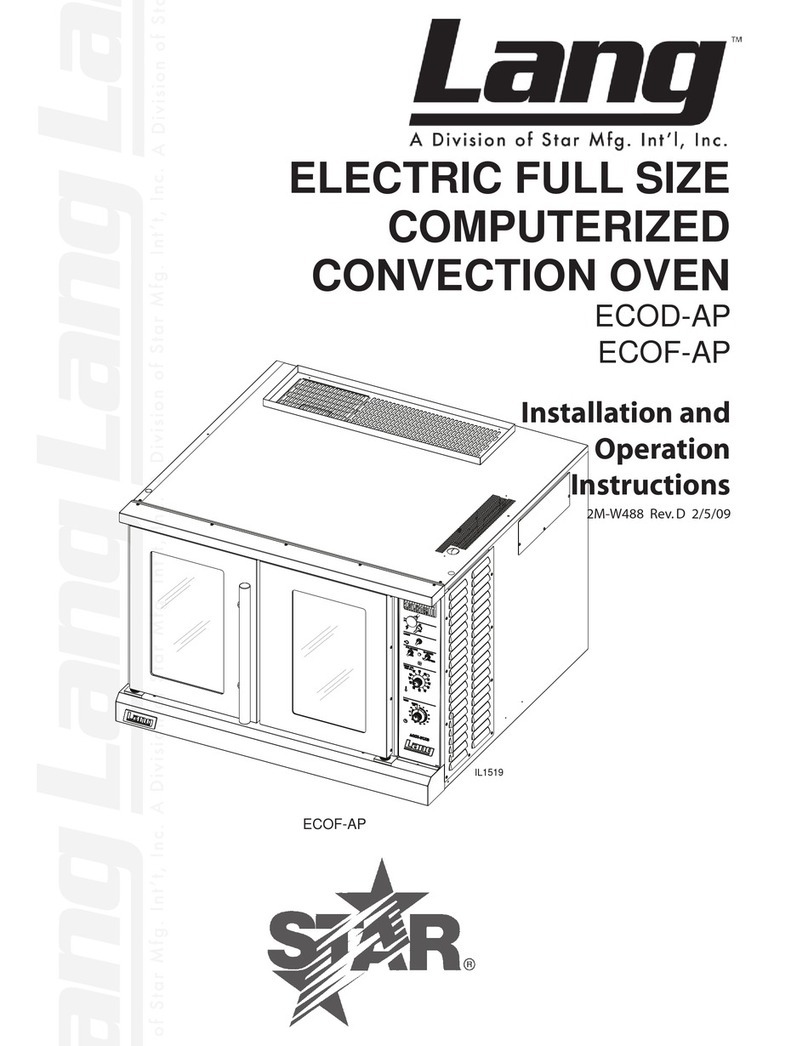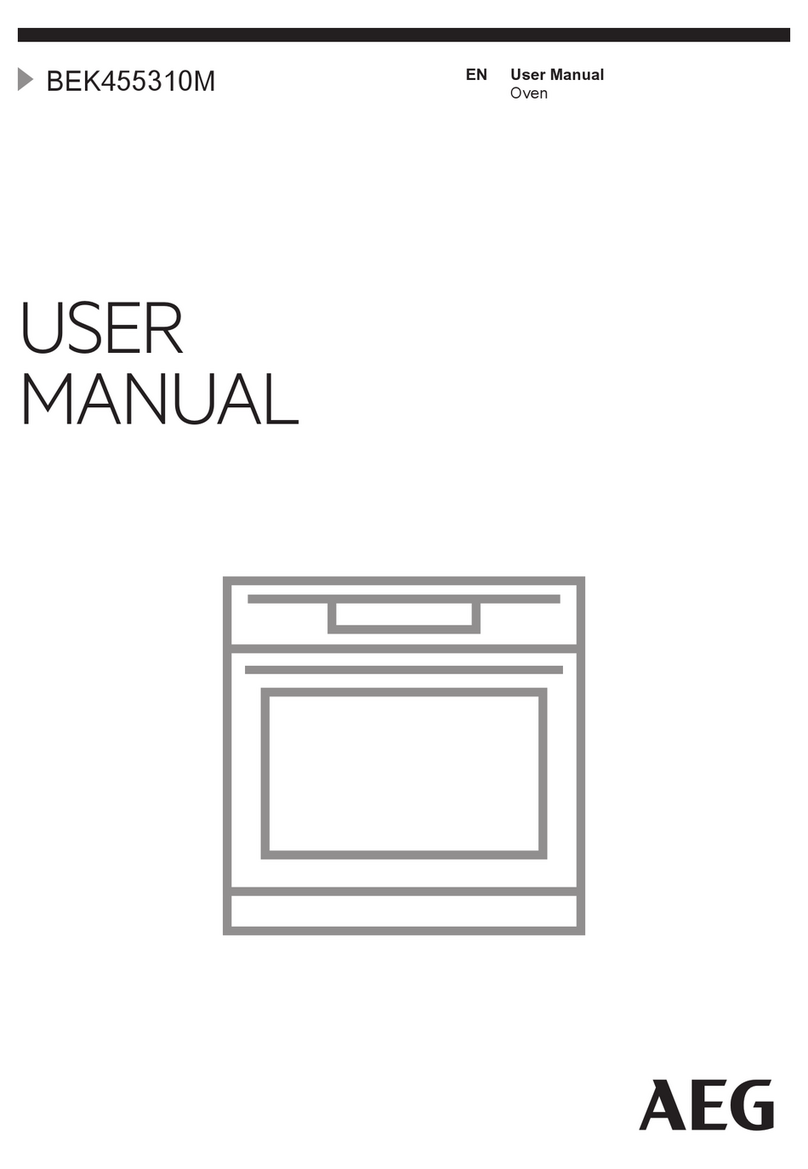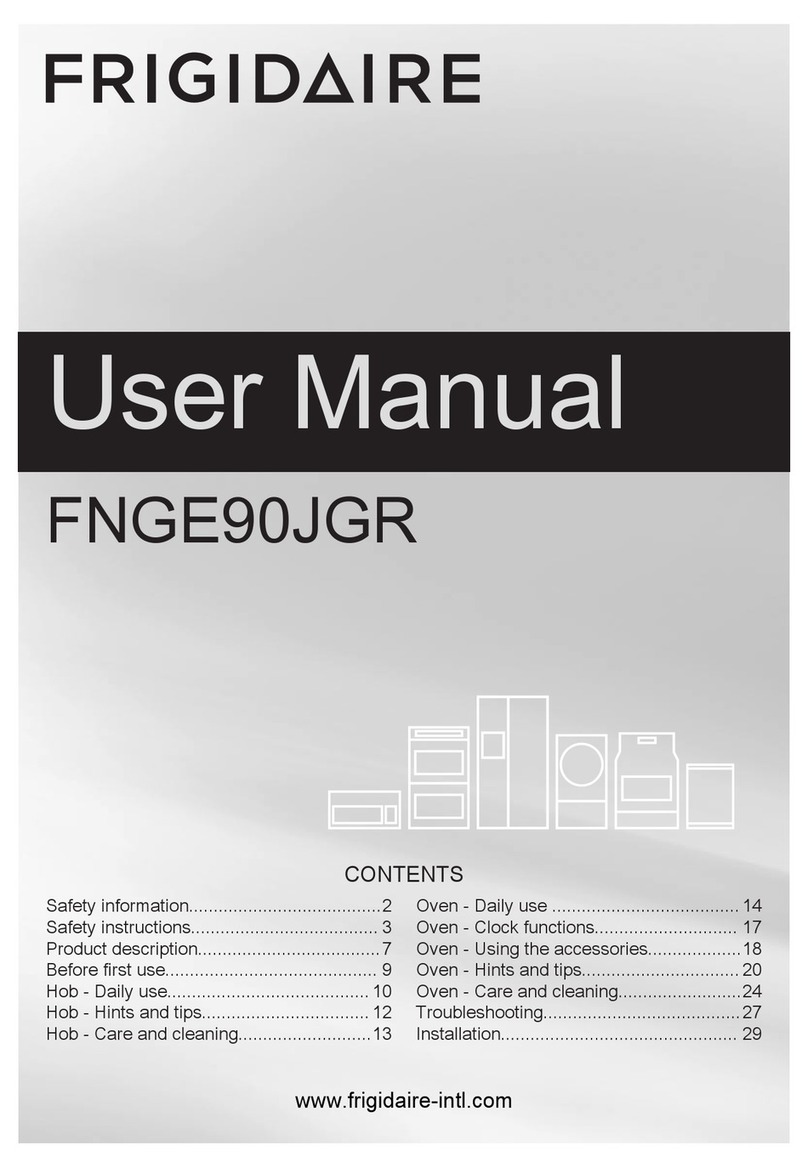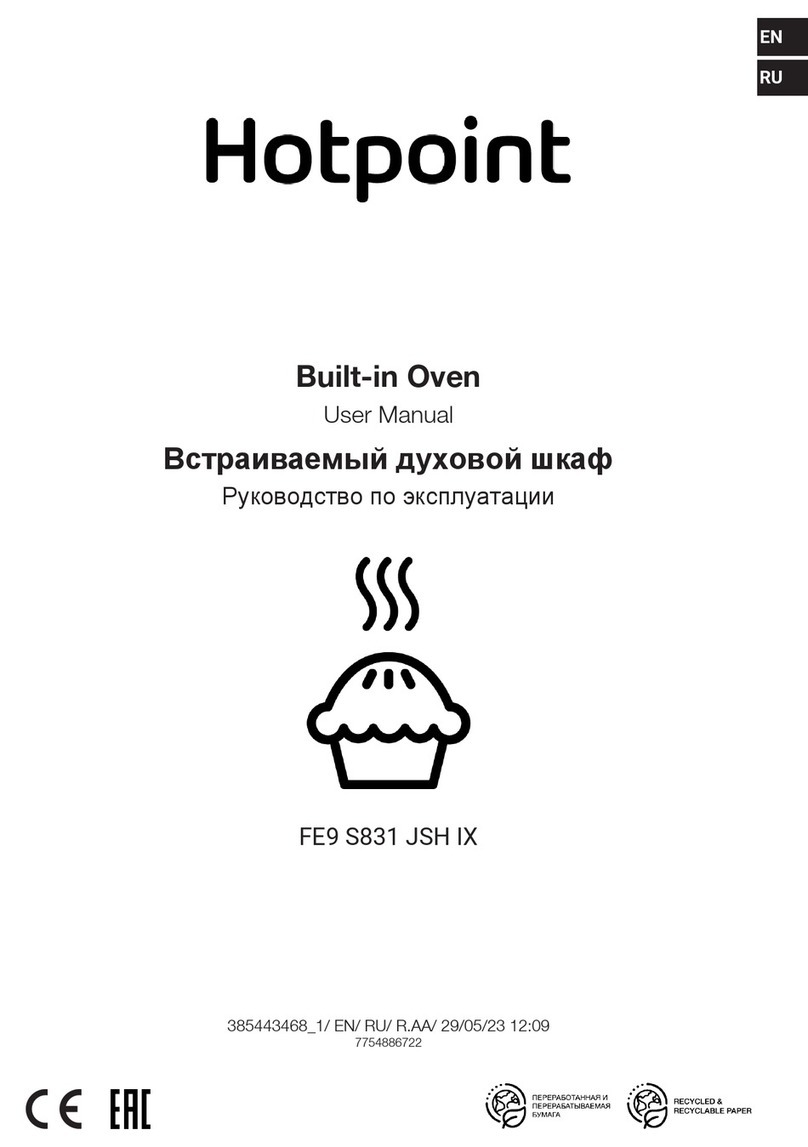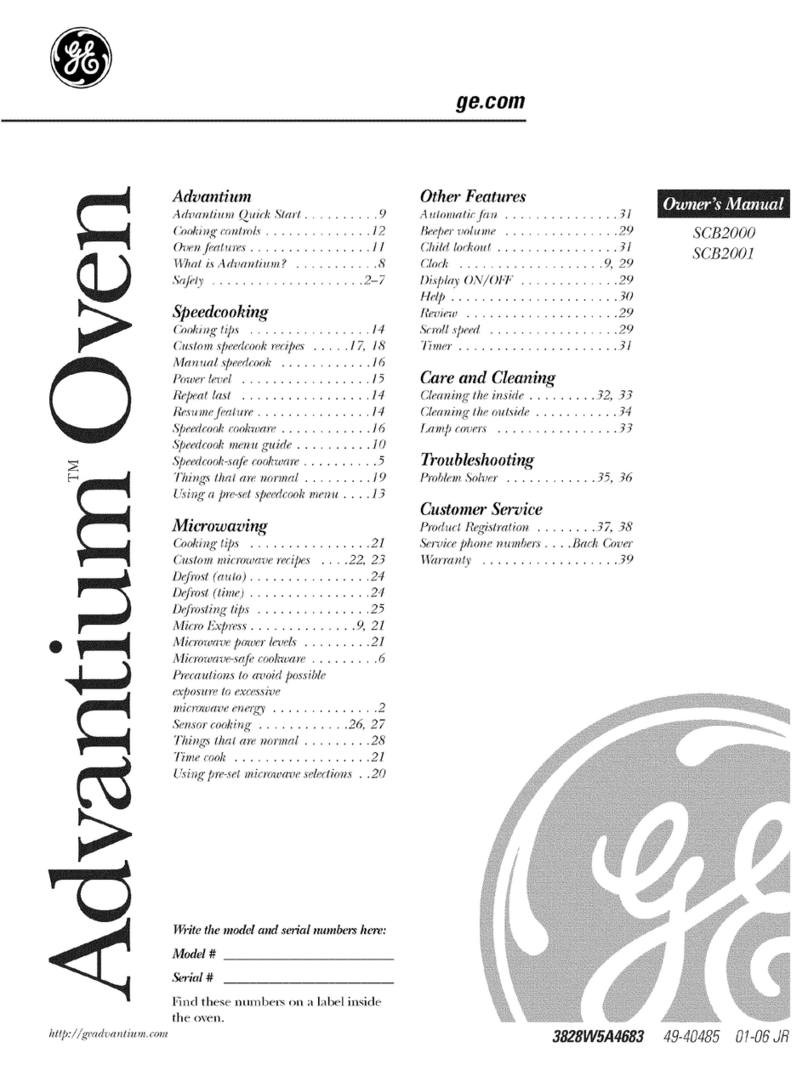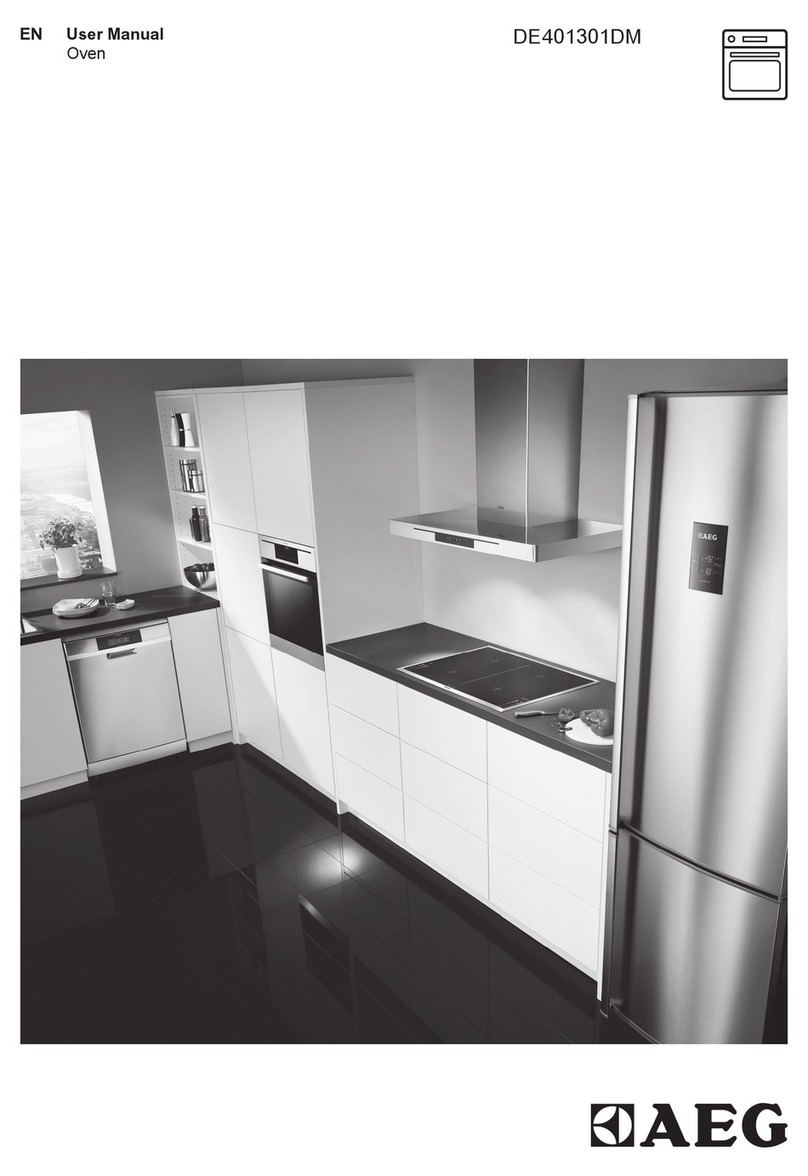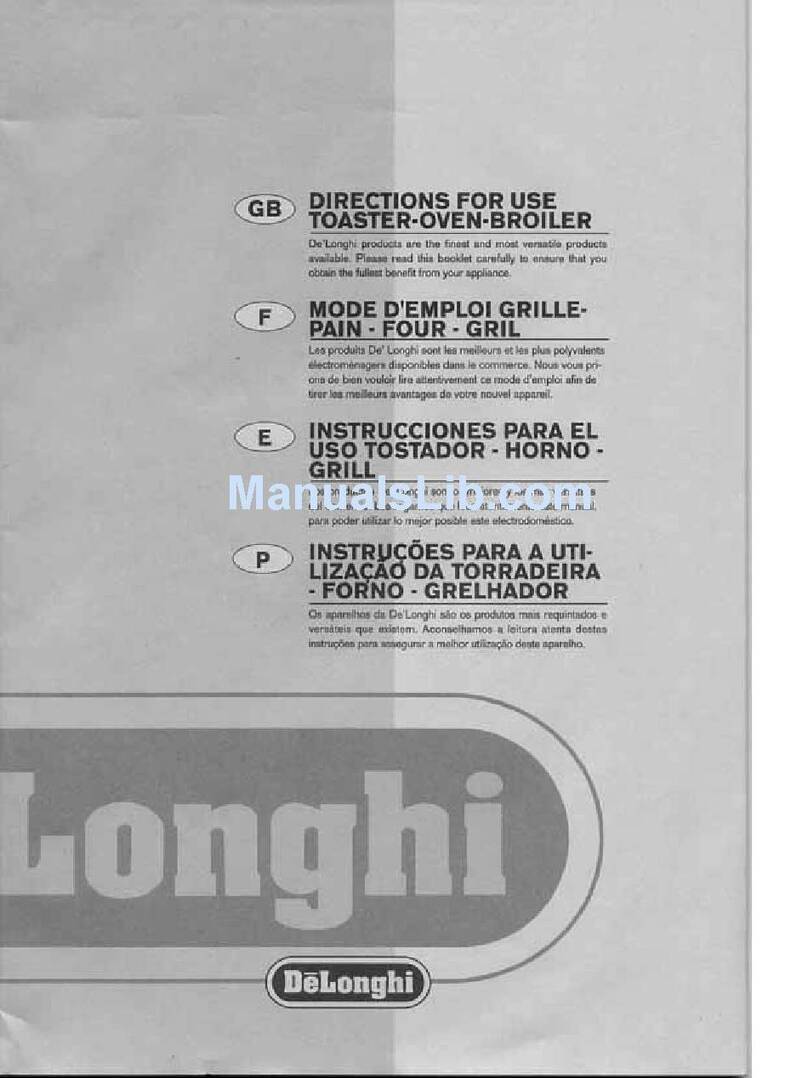5
Risk of scalding!
▯When you open the appliance door, hot
steam can escape. Steam may not be visible,
depending on its temperature. When
opening, do not stand too close to the
appliance. Open the appliance door
carefully. Keep children away.
Risk of scalding!
▯Hot liquid may spill over the sides of the
accessory when it is removed from the
cooking compartment. Remove hot
accessories with care and always wear oven
gloves.
Risk of electric shock!
▯Incorrect repairs are dangerous. Repairs
may only be carried out and damaged power
cables replaced by one of our trained after-
sales technicians. If the appliance is
defective, unplug the appliance from the
mains or switch off the circuit breaker in the
fuse box. Contact the after-sales service.
Risk of electric shock and serious injury!
▯The cable insulation on electrical appliances
may melt when touching hot parts of the
appliance. Never bring electrical appliance
cables into contact with hot parts of the
appliance.
Risk of electric shock!
▯Do not use any high-pressure cleaners or
steam cleaners, which can result in an
electric shock.
Risk of electric shock!
▯A defective appliance may cause electric
shock. Never switch on a defective
appliance. Unplug the appliance from the
mains or switch off the circuit breaker in the
fuse box. Contact the after-sales service.
Risk of electric shock!
▯The insulation of an incompatible meat
probe may be damaged. Only use the meat
probe which is recommended for this
appliance.
Causes of damage
Caution!
– Do not place anything on the cooking compartment
floor. Do not cover it with aluminium foil. A build-up
of heat could damage the appliance.
The cooking compartment floor must always be kept
clear. Always place ovenware in a perforated
cooking container or on a wire rack.
– Aluminium foil in the cooking compartment must not
come into contact with the door panel. This could
cause permanent discolouration of the door panel.
– We recommend you install a descaling system for
hard mains water. You can inquire with your
waterworks to obtain information about your mains
water.
– Ovenware must be heat and steam resistant.
Silicone baking tins are not suitable for combined
operation with steam.
– Use only original accessories in the cooking
compartment. Rusting material (such as serving
platters or knives and forks) can cause corrosion in
the oven interior.
– Use original small parts (e.g. knurled nuts) only.
Order small parts from our after-sales service if
these should be lost.
– Do not store moist food in the closed cooking
compartment for long periods. It can lead to
corrosion in the cooking compartment.
– Salt, spicy sauces (e.g. ketchup or mustard) or
salted dishes (e.g. cured roast) contain chloride
and acids. These corrode the surfaces of stainless
steel. Always remove residues immediately.
– Fruit juice may leave stains in the cooking
compartment. Always remove fruit juice immediately
and wipe the cooking compartment with a moist and
dry cloth.
– Improper care of the appliance may lead to
corrosion in the cooking compartment. Refer to the
care and cleaning instructions in the instruction
manual. Clean the cooking compartment each time
you use it as soon as the appliance has cooled
down. After cleaning the cooking compartment, use
the drying programme to dry it.
– Do not detach the door seal. The appliance door
will no longer close properly if the door seal is
damaged. The fronts of adjacent units could be
damaged. Have the door seal replaced.



